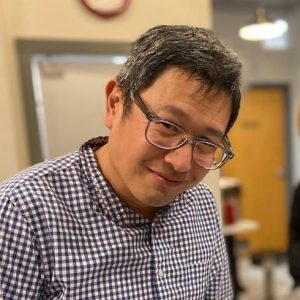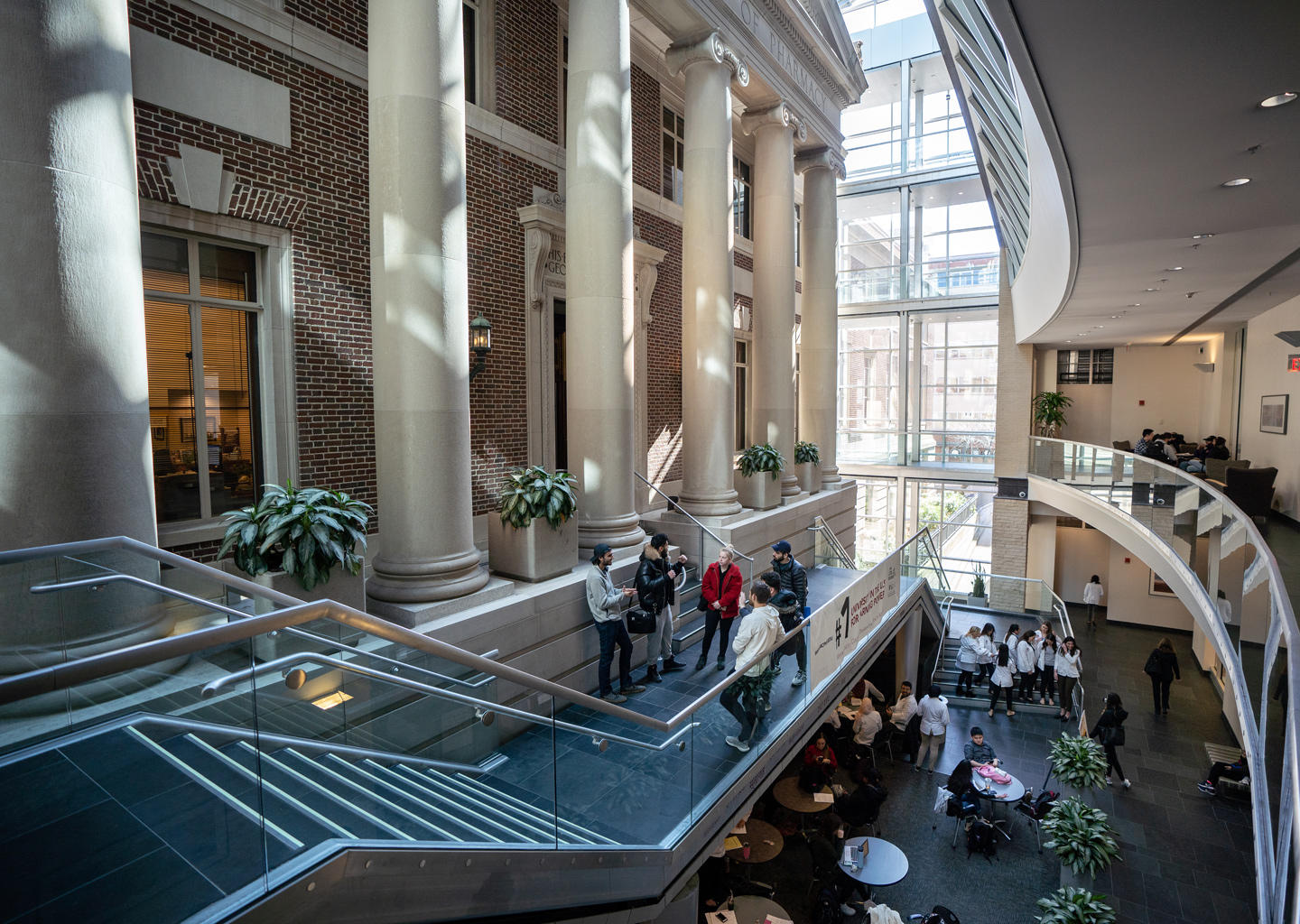
Dien Ho is a professor of philosophy and his research focuses on reproductive ethics, placebo study, philosophy of medicine, clinical ethics, theoretical reasoning, and philosophy of pharmaceutics. He is the director of the Center for Health Humanities at the Massachusetts College of Pharmacy and Health Sciences. He has taught a wide-range of courses from 750-student logic lectures, to graduate seminars on analytic paradoxes, to healthcare ethics for clinicians. Dien was born in Hong Kong and immigrated to the United States at 13. In addition to his love for philosophy, he is also passionate about cycling and zombies.
What is the name of your organization/association/society/research group?
Center for Health Humanities. We are a center within the Massachusetts College of Pharmacy and Health Sciences.
What is its story and history?
We began in 2004 as a small group of faculty members who were interested in health humanities. At the time, we called ourselves the Health Humanities Interest Group. Even during those early days, there were plans to turn our group into a more permanent and well-funded Center. In 2013, the Center for Health Humanities was formally established.
What is its mission and its philosophy?
The mission of the Center is to promote scholarship, pedagogy, community advocacy, and student activities in the humanities as they contribute to the education and practice of healthcare and to our understanding of health, illness, and care.
We define humanities broadly to include philosophy, literature, rhetoric, visual and performing arts, history, anthropology, public health, and other revenant methodologies in the social and behavioral sciences.
We believe that health and humanism are deeply intertwined and they can best be understood from a multi-disciplinary perspective.

How is it framed today?
We see Health Humanities as an integral part of any pre-professional healthcare education. Humanistic concepts have always been a part of our healing practice. Our task as scholars and educators is to highlight the presence of these concepts in our pursuit of health and well-being. Moreover, since the Massachusetts College of Pharmacy and Health Sciences is primarily a health education institution, we also believe that humanities scholars can benefit from learning more about the science of the body.
What are the main ongoing projects?
Our lively annual Speaker Series brings five to six scholars to present their research to our students and faculty members. We have also launched our Visiting Scholars Program that hosts affiliated and independent researchers. We provide them with a $1,000 per week stipend in addition to a free apartment during their stay. The aim is to support health humanities research and to facilitate collaboration.
We organize an annual Symposium in which invitees pre-circulate their current research and attendees draw from their respective expertise to help strengthen the projects. It is an intimate and intense one-day academic gathering. Finally, we award an annual Health Humanities Prize to an undergraduate project at MCPHS that best illustrates the intersection of health and the humanities. It is a wonderful opportunity to acknowledge our students’ incredible work.
What plans for the future?
In 2022, we co-hosted the annual Health Humanities Consortium’s conference. I was a tremendously successful event and we look forward to hosting another conference on our campus. We also look to connect with area’s institutions to develop closer ties and to continue to establish Boston as a hub of health humanities research.
Where did the organization/association/society/group find resistances or difficulties (i.e. shortage of HCP, time pressure, EBM dogma…)?
Our administration has been incredible supportive. In that respect, our funding is secured and consistent. The lack of space in the Longwood Medical Area makes physical gatherings more difficulty. But, we have witnessed far deeper appreciation of the importance of health humanities in clinical settings and pre-professional healthcare education. There is clearly more room to grow but we are encouraged by the trajectory of the field and we are delighted that we can play a role in nurturing health humanities as an academic field and an indispensable component of care.
